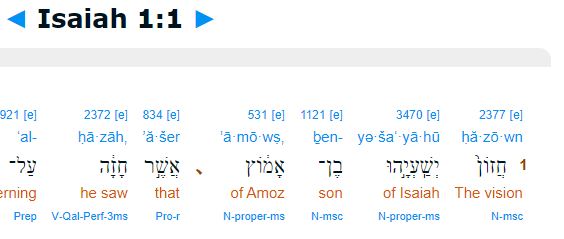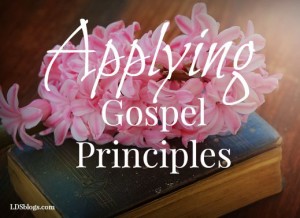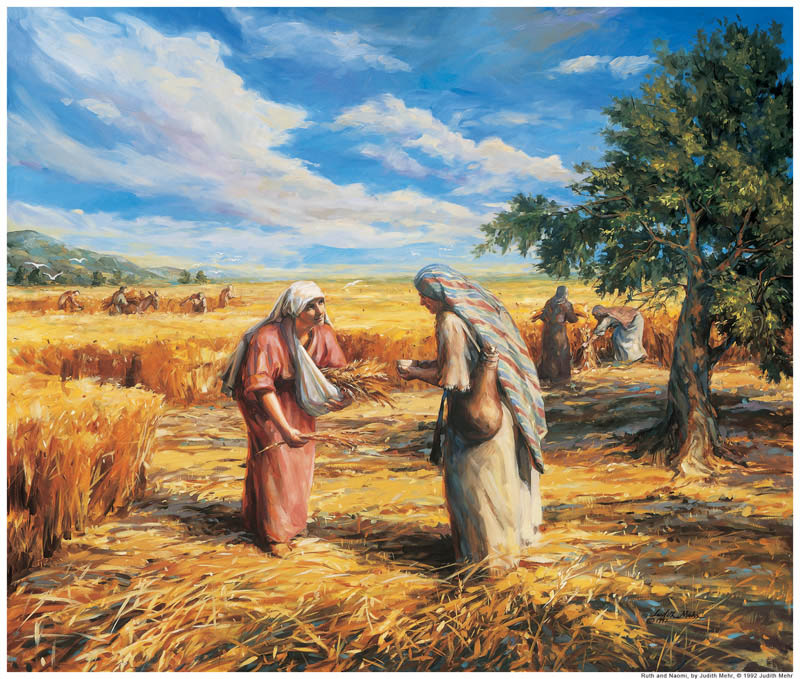I started studying Isaiah again. Even though I know I don’t completely (or probably even partially) comprehend Isaiah’s message, I love the beauty of his writing and my eyes open to something new when I study his words. The main reason I study Isaiah is because the Savior said to.
And now, behold, I say unto you, that ye ought to these things. Yea, a commandment I give unto you that ye search these things diligently; for great are the words of . …. And all things that he spake have been and be, even according to the words which he spake.
Anyway, when I start anew with a fresh perspective after more experiences and life lessons, I find new ways to apply what Isaiah taught to my life.
This time I imagined myself at grandfather Isaiah’s feet like the new Book of Mormon videos depict Lehi’s family gathered around him. I want to know and understand what Isaiah knew and saw. I pray for understanding.
I opened Bible Hub, which is an amazing, free online resource that enables me to read the Old Testament with a linear Hebrew translation, and the New Testament with a linear Greek translation (amongst many other things). As I read out of my scriptures, I click on words that catch my attention on Bible Hub and I can peruse their literal meanings and also see where else those words are used in the scriptures.
Isaiah 1:1

Isaiah 1:1 Screenshot from Bible Hub
The of the son of Amoz, which he saw concerning and Jerusalem in the days of , , , and Hezekiah, kings of Judah.
The word “vision” caught my eye. My instant reaction was, “I know what a vision is. And it’s what other people have.” But the word “saw” compelled me to look at Bible Hub.
Bible Hub’s Concordance Listings for “Hazah,” the Hebrew Word for “He Saw”
Strong’s Concordancechazah: see, behold
Original Word: חָזָה
Part of Speech: Verb
Transliteration: chazah
Phonetic Spelling: (khaw-zaw’)
Definition: see, behold
Strong’s Exhaustive Concordance
behold, look, prophesy, provide, see
A primitive root; to gaze at; mentally, to perceive, contemplate (with pleasure); specifically, to have a vision of — behold, look, prophesy, provide, see.
Brown-Driver-Briggs
1 see, behold: ….
2 see as a seer in the ecstatic state, with accusative of the vision seen: ….
3 see, perceive: with intelligence
The section is much more detailed with applicable verses and related language definitions, causing the simple phrase “he saw” to come to life in a new way for me.
My mind connected “he saw” to the word “see” in the temple endowment. I’ve long been intrigued by the usage and meaning of “see” in that ordinance. So as I considered all of these meanings with “see” in that context, my mind really expanded.
“The Vision”
Intrigued, I decided to click on “the vision” after all since I could see that the word was related to “he saw.”
Strong’s Concordance
chazon: visionOriginal Word: חָזוֹן
Part of Speech: Noun Masculine
Transliteration: chazon
Phonetic Spelling: (khaw-zone’)
Definition: vision
Brown-Driver-Briggs
1 vision, as seen in the ecstatic state ….
2 vision, in the night ….
3 divine communication in a vision, oracle, prophecy ….
4 vision, as title of book of prophecy ….
Strong’s Exhaustive Concordance
vision
From chazah; a sight (mentally), i.e. A dream, revelation, or oracle — vision.
“Vision” was from “he saw!” It wasn’t a separate thing. His sight and ability to see enabled his vision.
See in the 1828 Webster’s Dictionary
I like comparing words at different time periods to see how meanings evolve or remain static. One resource I use a lot online is Webster’s 1828 Dictionary. What did “see” mean to Joseph and early Church leaders as they translated and studied the scriptures?
The definition of “SEE” in the 1828 Webster’s Dictionary provided some interesting insight and reminders to how I can apply Isaiah’s words to myself.
SEE, v. t. [Latin sequor, and Eng. essay, are all from the same radix. The primary sense of the root is to strain, stretch, extend; and as applied to see, the sense is to extend to, to reach, to strike with the eye or sight.]
1. To perceive by the eye; to have knowledge of the existence and the apparent qualities of objects by the organs of sight; to behold.
“I will now turn aside and see this great sight.” Exodus 3:3.
“We have seen the land, and behold, it is very good.” Judges 18:1.
2. To observe; to note or notice; to know; to regard or look to; to take care; to attend, as to the execution of some order, or to the performance of something.
Give them the first one simple idea, and see that they fully comprehend before you go any farther. Locke.
“See that ye fall not out by the way.” Genesis 45:12.
3. To discover; to descry; to understand. Who so dull as not to see the device or strategem?
very notable actions often lose much of their excellence when the motives are seen.
4. To converse or have intercourse with. We improve by seeing men of different habits and tempers.
5. To visit; as, to call and see a friend. The physician sees his patient twice a day.
6. To attend; to remark or notice.
I had a mind to see him out, and therefore did not care to contradict him. Addison.
7. To behold with patience or sufferance; to endure.
“It was not meet for us to see the king’s dishonor.” Ezra 4:14.
To read more of Delisa’s articles, click here.
8. In Scripture, to hear or attend to.
“I turned to see the voice that spoke with me.” Revelation 1:7.
9. To feel; to suffer; to experience.
“Make us glad according to the days wherein thou hast afflicted us, and the years in which we have seen evil.” Psalms 90:1.
“If a man shall keep my saying, he shall never see death.” John 8:51. Luke 2:15.
10. To know; to learn.
“Go, I pray thee, see whether it be well with thy brethren.” Genesis 37:14.
11. To perceive; to understand; to comprehend. I see the train of argument; I see his motives.
12. To perceive; to understand experimentally.
“I see another law in my members.” Romans 7:23.
13. To beware.
“See thou do it not.” Revelation 1:79.
14. To know by revelation.
“The word that Isaiah, the son of Amoz, saw concerning Judah and Jerusalem.” Isaiah 2:8.
15. To have faith in and reliance on.
“Seeing him who is invisible.” Hebrews 11:5.
16. To enjoy; to have fruition of.
“Blessed are the pure in heart, for they shall see God.” Matthew 5:8.
SEE, verb intransitive
1. To have the power of perceiving by the proper organs, or the power of sight. Some animals, it is said, are able to see best in the night.
2. To discern; to have intellectual sight; to penetrate; to understand; with through or into; as, to see through the plans or policy of another; to see into artful schemes and pretensions.
3. To examine or inquire. See wether the estimate is correct.
4. To be attentive.
5. To have full understanding.
“But now ye say, we see, therefore your sin remaineth.” John 9:41.
(Quotation marks added, spelling updated.)
I read the scriptures with a general definition of common words in mind. Taking a few minutes to remind myself of additional definitions or learn new definitions altogether really expanded my view of what it means “to see.”
I am a member of The Church of Jesus Christ of Latter-day Saints. I have moved 64 times and have not tired of experiencing this beautiful earth! I love the people, languages, histories/anthropologies, & especially religious cultures of the world. My life long passion is the study & searching out of religious symbolism, specifically related to ancient & modern temples. My husband Anthony and I love our bulldog Stig, adventures, traveling, movies, motorcycling, and time with friends and family.







